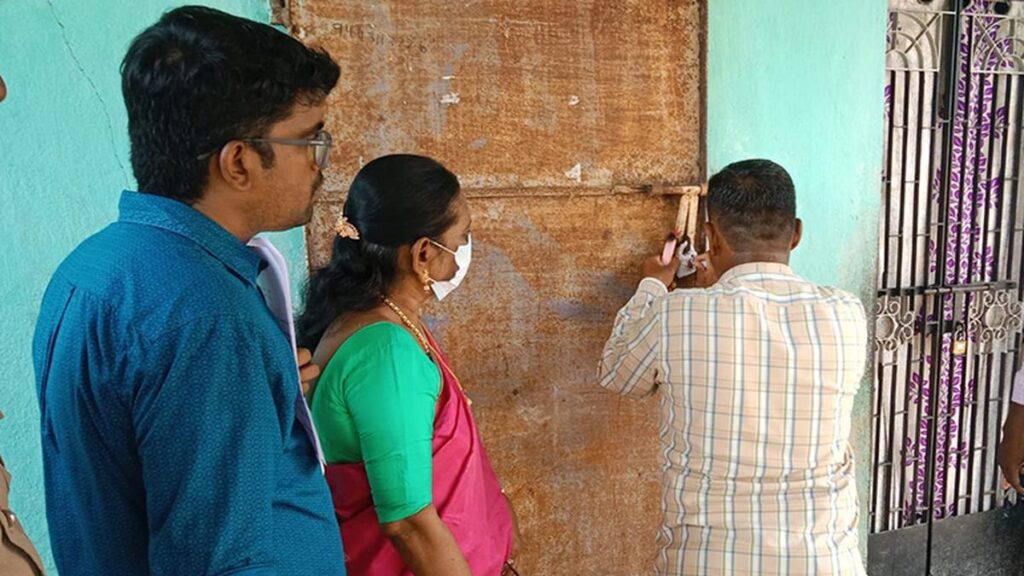In emergency departments of government hospitals across Telangana, doctors are witnessing a troubling rise in kidney failure cases among patients who first sought care at informal clinics. “When we probe their medical history, many recall being prescribed a cocktail of medicines by a so-called rural doctor. Upon verification, we often find that the clinic was operated by an unqualified practitioner or a quack,” doctors said.
The proliferation of unqualified medical practitioners, or quacks, is not confined to rural Telangana. It is now a deep-rooted, state-wide public health crisis affecting both urban and rural populations, according to senior health officials and professional medical bodies. Despite recent efforts to clamp down on illegal medical practice, the challenge remains systemic and urgent.
Crackdown in motion, but problem deep-rooted
Nearly a year into a statewide crackdown on unauthorised medical practice, Srinivas Gundagani, vice chairman of the Telangana Medical Council (TGMC), shared that the Council has so far filed over 450 FIRs across the state, with around 140 cases currently in court.
“What we are seeing is not just illegal practice but life-threatening mismanagement by unqualified individuals. During one of our raids in Sangareddy district, we found a 10th-fail woman performing abortions. In another case, a woman with no medical background was managing an emergency room, prescribing IV antibiotics, and giving medication to pregnant women,” he added.
TGMC categorises quacks into three broad groups:
- Completely unqualified individuals, some barely educated, who run clinics and treat everything from fevers to hypertension, even performing abortions and minor surgeries.
- AYUSH practitioners (BAMS, BHMS, Unani) illegally practise allopathy — managing ICUs, performing deliveries, administering IV drugs, and prescribing steroids, often without oversight from any MBBS-qualified doctors.
- Foreign Medical Graduates (FMGs) who have not cleared the Foreign Medical Graduate Examination (FMGE) but practice under the guise of being doctors by borrowing the credentials or prescription pads of others

Antibiotic misuse, kidney failure, and deaths
Medical experts are raising alarm bells about the indiscriminate use of antibiotics and steroids by these untrained practitioners, a practice that is fuelling Antimicrobial Resistance (AMR), which could pose a bigger global health threat than COVID-19 by 2050.
“These people do not understand diagnosis or proper dosage. The misuse is causing irreversible damage, kidney failure, cataracts, and even deaths,” Dr. Srinivas said, citing the case of a gym trainer in Hyderabad who was misdiagnosed by a quack and later died from a cardiac episode after being sent home without even an ECG.
Another disturbing case involved a botched piles surgery by a quack that had to be corrected by a qualified surgeon at ESI Hospital in Hyderabad
Weak enforcement and legal loopholes
Though TGMC has been proactive in identifying violators and filing FIRs, it lacks enforcement authority. “Once we file an FIR, we forward it to the District Medical and Health Officers (DMHOs) to take further action. Some respond, but most do not” Dr. Srinivas said. He pointed out that DMHOs are empowered under the Telangana Medical Practitioners Act to seal clinics and prosecute offenders but often fail to act, allowing quack-run facilities to reopen within days.
A 2021 dossier by the National Health Systems Resource Centre highlights significant gaps in Telangana’s public healthcare infrastructure. Rural areas face a 12.4% shortfall in Primary Health Centres (PHCs) and a 53.04% shortfall in Community Health Centres (CHCs). The situation is even more severe in urban regions, where PHC shortfall stands at 27.41%. Tribal areas are the worst affected, with a 44.12% shortfall in CHCs and a 46.38% shortfall in PHCs, leaving these already vulnerable communities critically underserved.
Dr Srinivas dismissed the argument that quacks are necessary in rural areas due to a shortage of doctors. “Telangana produces nearly 10,000 MBBS graduates annually. What we lack is not doctors, it’s infrastructure, regulation, and political will,” he said.
IMA Telangana raises red flag
Echoing TGMC’s concerns, Dwarakanath Reddy, president of the Indian Medical Association (IMA), Telangana chapter, described the situation as ‘a slow-burning epidemic’. He criticised past government efforts to informally legitimise quacks in rural areas through pseudo-certification, calling them illegal and dangerous.
“No certification can be given to an unqualified person, that’s the law. What we are seeing is a result of casual employment in hospitals, where support staff gain minimal experience and then open unauthorised clinics,” he said.
Dr. Reddy warned of the severe public health consequences of what he termed the ‘shotgun approach’ of prescribing, a method in which quacks give broad-spectrum antibiotics and steroids for every complaint, leading to temporary relief but long-term harm. “This is one of the biggest contributors to AMR,” he said.
He urged the government to create enabling conditions for MBBS graduates to serve in rural areas. “If you want young doctors to set up practice in remote districts, you need to provide subsidies, housing, and supportive systems, not allow untrained individuals to fill the gap.”
Quackery is not a professional rivalry issue, it is a life-and-death matter
Both TGMC and IMA leaders stressed that the anti-quackery drive is not about professional rivalry, but about preventable deaths and long-term health consequences due to misdiagnosis and irrational drug use.
“This is about saving lives. We have seen patients lose kidneys, go blind from steroid overuse, or die after botched procedures in unhygienic settings. Quackery is a threat to life, not just legality,” Dr. Srinivas said.
Published – June 26, 2025 06:35 pm IST

